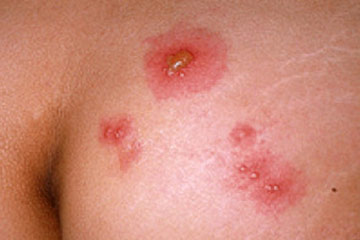Vaccinations and Travel
- Have you scheduled a visit to your doctor or a travel medicine provider?
Ideally, set up one up 4 to 6 weeks before your trip.
Most vaccines take time to become effective in your body and some vaccines must be given in a series over a period of days or sometimes weeks.
If it is less than 4 weeks before you leave, you should still see your doctor. You might still benefit from shots or medications and other information about how to protect yourself from illness and injury while traveling. - Are you aware of which types of vaccinations you or those traveling with you may need?
CDC divides vaccines for travel into three categories: routine, recommended, and required. While your doctor will tell you which ones you should have, it's best to be aware of them ahead of time.
Routine Vaccinations
Be sure that you and your family are up to date on your routine vaccinations. These vaccines are necessary for protection from diseases that are still common in many parts of the world even though they rarely occur in the United States. If you are not sure which vaccinations are routine, look at the schedules below. - Recommended Adult Immunization Schedule — United States, 2005-2006
- Recommended Childhood and Adolescent Immunization Schedule — United States, 2005-2006
- Vaccine Recommendations for Infants and Children
The U.S. routine schedule for childhood immunizations. This schedule may need to be adjusted if a child is traveling. See separate section below.
Recommended Vaccinations
These vaccines are recommended to protect travelers from illnesses present in other parts of the world and to prevent the importation of infectious diseases across international borders. Which vaccinations you need depends on a number of factors including your destination, whether you will be spending time in rural areas, the season of the year you are traveling, your age, health status, and previous immunizations.
Search by country at the top of this page to find out which vaccinations are recommended, or see our destinations page and look up the world region you will visit.
Required Vaccinations
The only vaccine required by International Health Regulations is yellow fever vaccination for travel to certain countries in sub-Saharan Africa and tropical South America. Meningococcal vaccination is required by the government of Saudi Arabia for annual travel during the Hajj.
Yellow Fever
Use the Health Information for International Travel information below to determine if you will need a yellow fever certificate, and find a clinic that can give the vaccination and issue the certificate.
- Yellow Fever (disease, vaccination, and vaccination certificate information)
- Yellow fever vaccination recommendations by country
- Authorized U.S. yellow fever vaccination clinics
Anuncios
Meningococcal Meningitis
See Saudi Arabia Hajj Requirements, and Meningococcal Disease in Health Information for International Travel. - Do you have altered immunocompetence due to illnesses such as diabetes or HIV?
Read Vaccine Recommendations for Travelers with Altered Immunocompetence, Including HIV in Health Information for International Travel or take a copy to your doctor. - Are you pregnant or breastfeeding?
Read the Immunizations section of Pregnancy, Breast-Feeding, and Travel in Health Information for International Travel or take a copy to your doctor. - Are you traveling with infants or children?
Read the Vaccine Recommendations for Infants and Children section in Health Information for International Travel or take a copy to your doctor.
While many travel health issues for adults also apply to infants and children, they also have special needs that are to be considered when they travel. Don't forget to read about general health information for travel with infants and young children. - If you have not looked up our health information that applies to your specific travel destinations, do so now.
Search by region at the top of this page or see our Destinations page to find the world region you will visit.
There may be other health information you should know to help prepare you for your trip, such as food and water safety, avoiding insects, and more.
Source
centers for Disease Control and Prevention
National center for Infectious Diseases, Division of Global Migration and Quarantine
http://www.cdc.gov/
July 2007






